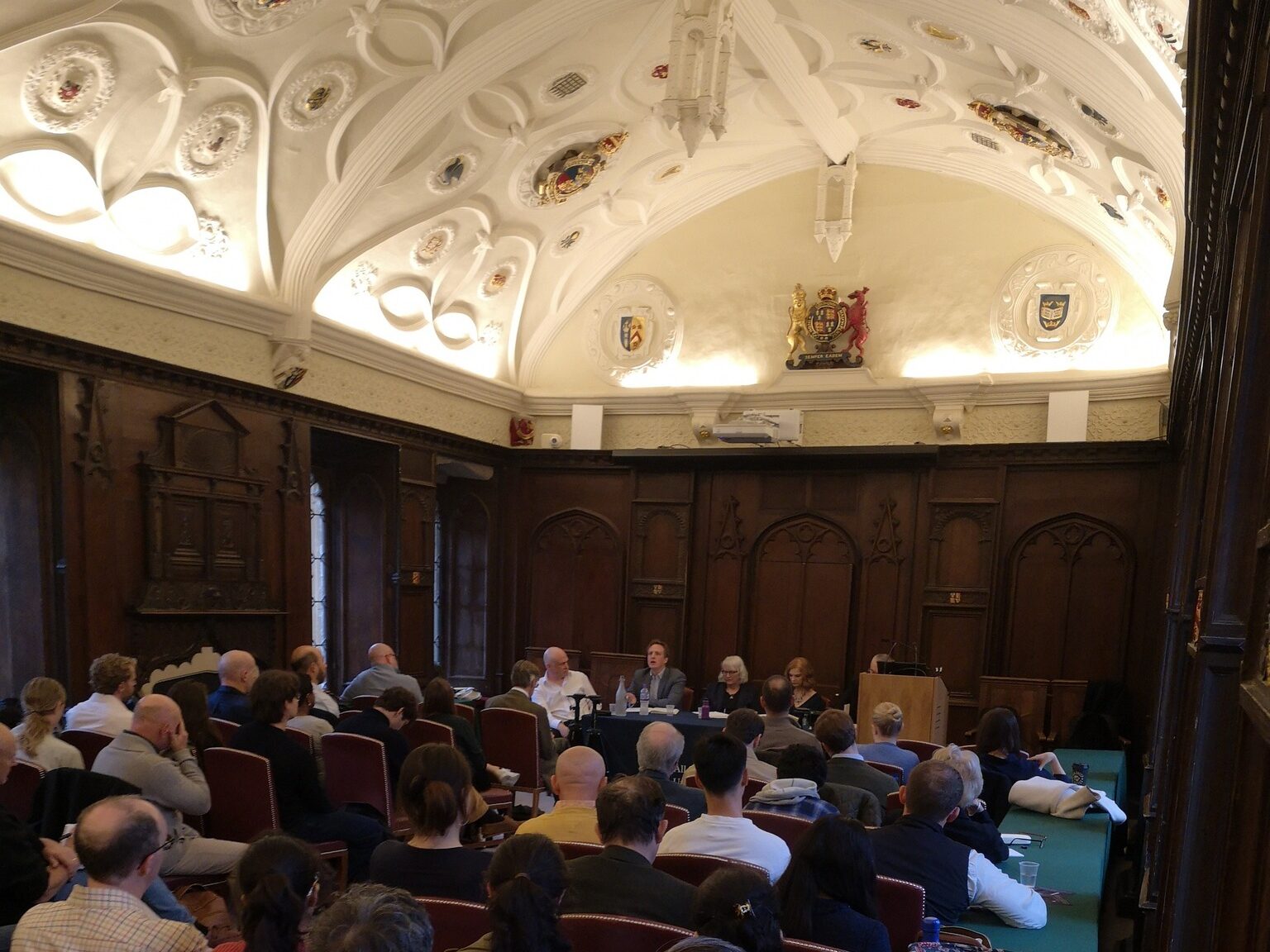The Changing Character of War programme at #Oxford is discussing Patrick Porter’s new book How to Survive a Hostile World from Stanford University Press. Porter argues for realism – what I’d call the “lawful evil” path of international relations – as the right response in an age of war, economic dislocation, and climate crisis.
The panel includes: Prof. Patrick Porter (Birmingham), Dr. Susan B. Martin (King’s College London), Dr. Jeanne Morefield (Oxford), Dr. David Blagden (Exeter), and Dr. Seán Molloy (Kent).

Porter tackles three standard critiques of realism – that it’s immoral, unrealistic, and provincial – and flips them. He insists realism is moral because it defends the polity where no higher law exists, realistic because it reflects how human groups actually behave, and universal because it can apply beyond the Euro-Atlantic world.
But this is Oxford #IR, so don’t expect much challenge. Realism here really means: how to manage decline without admitting it. It’s hard to argue for realism in an era of #climatechaos and the global hard-right shift. If the state is the “rational actor,” that actor is already captured, elitists circling the wagons while “strongman politics” gets rebranded as “stability.” Expect talk of “peace through strength,” the same logic that once drove Japan before WWII and now drives Israel. They’ll all agree they hate the liberal imperialism of the past 20 years – Afghanistan, Iraq, Libya – while quietly defending the same machinery that made it possible.
The deeper question, what’s the optimal flock size for survival in a hostile world? will be avoided, because that would mean admitting that what really matters to them isn’t the state at all, but the tribe: class, in-group, and out-group. Realism today is an ideology for managing collapse, not preventing it. If we want a liveable world and culture, we have to move beyond this toward post-capitalist, trust-based cooperation, not another round of “lawful evil” geopolitics.
By serious academic standards, realism is a “degenerating research program.” Every time reality disproves it, the theory just bolts on new excuses, a patchwork of “yes, but” footnotes that never die. Lacking moral grounding, it hides behind “pragmatism” while refusing to say what’s good or bad. “That’s just how the world works,” they say, mistaking description for wisdom.
Realists claim they see the world as it is: power, conflict, survival. But even within their own logic, it’s full of contradictions, empire pretending to be restraint, militarism dressed as reason. Realism doesn’t always mean war, but it always means preparing for one. For them, the state is sacred and indivisible – the only actor that matters – which is why their worldview drips with Eurocentrism and state worship.
In truth, realism isn’t wrong so much as exhausted: a worldview for a dying world that can’t imagine anything beyond power. In the age of #climatechaos and #deathcult politics, we need a new grounding – trust, cooperation, transparency (#4opens) – rather than fear and force.
Realism is international relations for adult teenagers who never grew up – still desperate to make their childhood world of heroes, villains, and empires real.